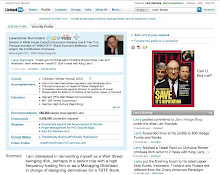LA TIMES--When the chief executive of gargantuan health insurer WellPoint (parent of Blue Cross of California) went before a congressional subcommittee the other day, she displayed all the smile-through-the-tears pluck of Annie looking to a sunny tomorrow or Scarlett swearing to God she'll never be hungry again.
WellPoint didn't really want to jack up health premiums on its customers by as much as 39%, she said -- it had no choice. "We care deeply about our California customers," she said.
But what she was really telling the committee members was this: "Please put us out of our misery."
Braly explained that her company's premium increases on individual policies were based on several circumstances: One, people are getting older. Two, people are becoming unemployed, and if they're healthy they're dropping out of the insurance pool. Three, the cost of diagnostic testing is soaring.
Implicitly, she begged for the government to help -- put people back to work so they're eligible for cheaper group plans, and clamp down on costs. (Not even the government can stop people for growing older.) Without that help, she intimated, premiums are going to keep rising sharply and WellPoint's already meager profits are going to be hammered worse.
In delivering this appeal, Braly was forced to make an implicit admission that her industry almost never makes explicitly: The nation's health coverage system is so hopelessly broken that even the health insurance industry can't handle it anymore.
Her testimony, and other statements she and other WellPoint executives have made, suggests that insurers can't profitably manage through periods of high unemployment. They can't price policies in a way that keeps healthy young people in the same pool as older people, producing a mockery of the very point of indemnity insurance. Despite a decade of unobstructed consolidation, which was sold to regulators as a way to control healthcare costs by creating mega-insurers like hers, her industry can't control healthcare costs.
Braly's words are a reminder of the most important unasked question in the entire healthcare debate: What do we need insurance companies for, anyway?
Read the rest here.
Subscribe to:
Post Comments (Atom)





































.jpg)












No comments:
Post a Comment